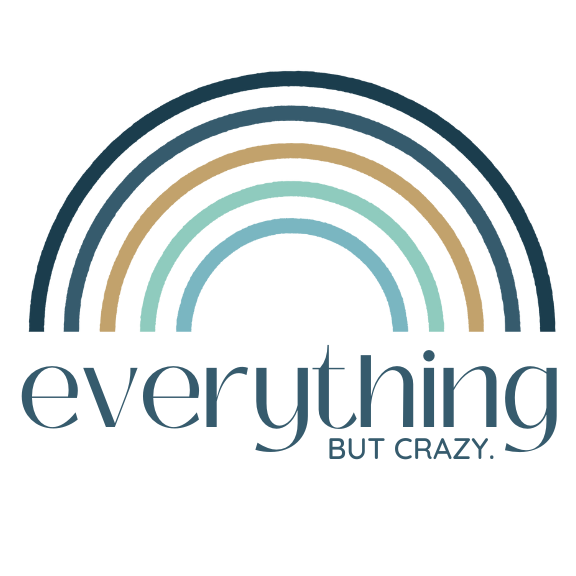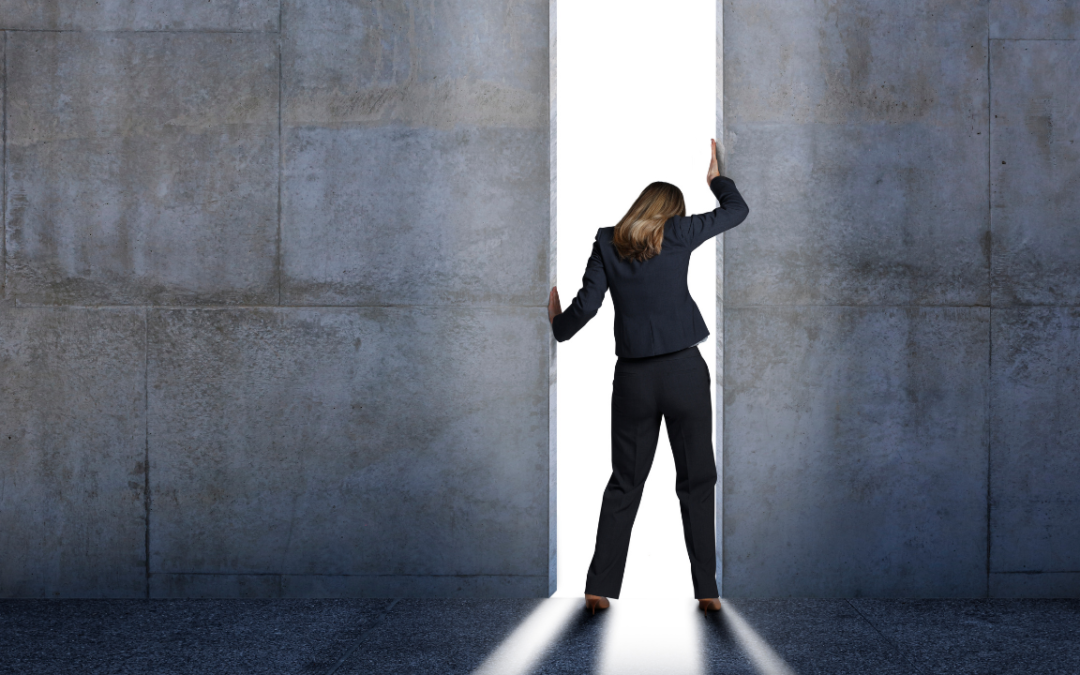How to Get Unstuck Using The Power of Thought
Ever had one of those days? Or weeks… or maybe even years? One of those periods of time when everything feels hard as hell. When it feels like the walls are closing in on you and there’s no way out. Most of us have been there. And most of us have also had the experience of believing it won’t end. Because when you’re in that space, you can’t see a way out. (Otherwise you would take it!)
So, how do we get unstuck?
The Influence of Thoughts
How we think about our situation has powerful implications for how it feels to go through it (You can read more about the power of thoughts here). If you take any difficult situation… our thoughts have the ability to make it easier or much, much harder to deal.
The sleep situation with both of my children is a prime example. Both of my kids were TERRIBLE sleepers. I mean bad. Like waking up sometimes more than 12 times in one night. And with my first child, my daughter Boo, we tried everything short of leaving her in her crib alone to cry all night long (Stay with me… try to hold back the emotions and opinions that I know get stirred up with baby sleep issues!!!!).
Needless to say, it was exhausting, and my husband Avi and I were consumed with thoughts of sleep. For a good long while, we were miserable. But then one night Avi approached me with a game-changing thought. He said:
“This is just is what it is. Our baby doesn’t sleep, and so that means we’re not going to sleep for a long time. And that’s just what it is. Let’s just accept it and move on with our lives.”
At first, I was incredibly irritated by this suggestion. I couldn’t understand how we could just move on when we were dealing with something as basic as sleep. So he started to do the work first. And I watched as he actually did become a happier person, in the midst of the continued and very real stress of sleep deprivation.
Get Unstuck Through Radical Acceptance
It turns out that this thing that he did has a name, and it’s called radical acceptance. Radical acceptance refers to the choice we have in how we respond to the realities and frustrations of life. There are so many things that don’t happen in the way we wish they did. That’s the part of life we can’t control. But how we react to those things is under our control.
We can choose to think “This isn’t fair,” or we can accept “Well, this sucks, but I can’t change it.” We can consume ourselves with thoughts like “I can’t stand this,” or we can acknowledge “this hurts, but it will be over soon.”
So I decided to give it a try. I decided to stop trying to force something that couldn’t be forced. And I accepted that this lack of sleep thing was just part of our parenthood journey. Avi and I both knew that eventually it would end. She wasn’t going to be a high schooler waking up 12 times a night and looking to her parents for help. But for now, this was where we were at.
And let me tell you this one small change dramatically shifted everything for us. Our stress level decreased. Our bickering with each other decreased. And our enjoyment with our baby increased. Were we still tired? Hell yes. But we tolerated that feeling instead of letting it consume us.
Pain Versus Suffering
Radical acceptance helps us differentiate pain from suffering. There are going to be moments in life that are painful. Sometimes that pain will be physical (like breaking a bone), sometimes that pain will be emotional (like getting your heart broken), sometimes it is spiritual (as is often the case with grief), and sometimes it will be psychological (like when a tragedy happens). No matter how hard we wish those things away, they can’t be undone. That’s the painful part.
Suffering occurs when we try to fight against those things that cannot be undone. When we try to wish it away by saying “it shouldn’t be this way” or “I don’t want this situation.” It’s when we allow the negative experience to repeat in our minds as we try and find a way to stop it. The pain of life cannot be stopped, and putting our energy into trying just exhausts us and leads us nowhere.
Let me now say that choosing to accept reality does NOT mean you can’t improve it! So for my family with the sleep issue, just because we decided to accept that sleep was an issue, it didn’t mean we couldn’t try a new strategy when one sounded promising or worthwhile.
But practicing radical acceptance allowed us to tolerate the situation while we waited for an idea that fit our family. It helped us avoid spending hours of energy desperately searching for a new take on the baby sleep issue or trying to implement a strategy that was doomed to fail anyway. It gave us back the ability to be selective, which felt much more empowering.
After Getting Unstuck
Since making these changes to get unstuck, we’ve had moments when those bad habits of thought have returned. But, once we’ve noticed it, we both have worked hard to ground ourselves back into our reality and focus our attention on accepting what is fact and investing our energy only in those things that have the potential for change. It’s really helped us, and I hope it can help you.
So what are the areas in your life that you’re investing energy into and getting nowhere? Where are you stuck in a spinning cycle of negativity? What are the things you are trying to wish away that prevent you from moving forward? Radical acceptance starts with a choice. It’s a choice to stop the indulgence of the ‘why me’s and the ‘it’s not fair’s.” It starts with choosing to stop going backward and instead acknowledging where you are at now.
Although this practice will not allow you to escape pain, embracing your reality will reduce your suffering. It will give you the power back to finally get unstuck and move forward with your best self.
____
Dana Basu, PsyD is a licensed clinical psychologist at EverGROW therapy and founder of Everything But Crazy, an online resource for parents. She provides individual therapy, support groups, and online resources for parents in Orange County and throughout the state of California via online therapy. She specializes in working with the highly sensitive person and people with difficult childhood experiences, trauma, parenting stress, and chronic guilt.

